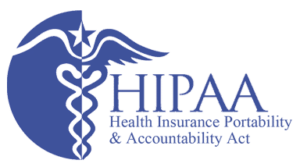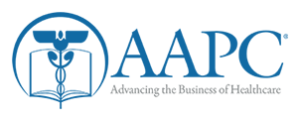Continuation of the updates in part 1. (Refer: https://bit.ly/3C34yM7)
On November 2, 2021, the Centers for Medicare & Medicaid Services (CMS) issued a final rule that includes updates on policy changes for Medicare payments under the Physician Fee Schedule (PFS), and other Medicare Part B issues, on or after January 1, 2022.
PAYMENT PROVISIONS:
1. Changes to Beneficiary Coinsurance for Additional Procedures Furnished During the Same Clinical Encounter as a
Colorectal Cancer Screening:
CMS finalized implementation of Section 122 of the CAA, which provides a special coinsurance rule for procedures that are planned as colorectal cancer screening tests but become diagnostic tests when the practitioner identifies the need for additional services (e.g., removal of polyps). At present, the addition of any procedure beyond the planned colorectal screening (for which there is no coinsurance) results in a beneficiary’s having to pay coinsurance.
Section 122 of the CAA reduces, over time, the amount of coinsurance a beneficiary will pay for such services. That is, for services furnished on or after January 1, 2022, the coinsurance amount paid for planned colorectal cancer screening tests that require additional related procedures shall be equal to a specified percent (i.e., 20 percent for CY 2022, 15 percent for CYs 2023 through 2026, 10 percent for CYs 2027 through 2029, and zero percent beginning CY 2030) of the lesser of the actual charge for the service or the amount determined under the fee schedule that applies to the test.
The reduction over time of the coinsurance percentage holds true regardless of the code that is billed for establishment of a diagnosis, for removal of tissue or other matter, or for another procedure that is furnished in connection with and in the same clinical encounter as the screening. Thus, beginning CY 2022, the coinsurance required of Medicare beneficiaries for planned colorectal cancer screening tests that result in additional procedures furnished in the same clinical encounter will be gradually reduced, and beginning January 1, 2030, will be zero percent.
2. Opioid Treatment Program (OTP) Payment Policy:
CMS finalized its proposal to allow OTPs to furnish counseling and therapy services via audio-only interaction (such as telephone calls) after the conclusion of the COVID-19 PHE in cases where audio/video communication is not available to the beneficiary, including circumstances in which the beneficiary is not capable of or does not consent to the use of devices that permit a two-way audio/video interaction, provided all other applicable requirements are met. CMS also finalized a requirement that OTPs use a service-level modifier for audio-only services billed using the counseling and therapy add-on code in order to facilitate program integrity activities.
Additionally, in order to avoid a significant decrease in the payment amount for methadone that could negatively affect access to methadone for beneficiaries receiving services at OTPs, CMS is issuing an interim final rule with comment to maintain the payment amount for methadone at the CY 2021 rate for the duration of CY 2022. CMS is also seeking comment on OTP utilization patterns for methadone, particularly, the frequency with which methadone oral concentrate is used compared to methadone tablets in the OTP setting, including any applicable data on this topic.
3. Rural Health Clinics (RHCs) and Federally Qualified Health Centers (FQHCs):
CMS finalized several provisions aimed at bolstering the abilities of RHCs and FQHCs to furnish care to underserved Medicare beneficiaries. The following provisions demonstrate CMS’ commitment to addressing health equities in rural and vulnerable populations.
Mental Health Services Furnished via Telecommunications Technologies for RHCs and FQHCs:
CMS finalized its proposal to revise the current regulatory language for RHC or FQHC mental health visits to include visits furnished using interactive, real-time telecommunications technology. This change will allow RHCs and FQHCs to report and receive payment for mental health visits furnished via real-time telecommunication technology in the same way they currently do when visits take place in-person, including audio-only visits when the beneficiary is not capable of, or does not consent to, the use of video technology. CMS also finalized that an in-person, non-telehealth visit must be furnished at least every 12 months for these services; however, exceptions to the in-person visit requirement may be made based on beneficiary circumstances (with the reason documented in the patient’s medical record) and more frequent visits are also allowed under our policy, as driven by clinical needs on a case-by-case basis.
4. Rural Health Clinic (RHC) Payment Limit Per-Visit:
Section 130 of the CAA as amended by section 2 of Pub. Law 117-7, requires that, beginning April 1, 2021, already-enrolled independent RHCs and provider-based RHCs in larger hospitals receive an increase in their payment limit per visit over an 8-year period, with a prescribed amount for each year from 2021 through 2028. Then, in subsequent years, the limit is updated by the percentage increase in Medicare Economic Index (MEI). Also beginning April 1, 2021, section 130 as amended requires that a payment limit per-visit be established for most provider-based RHCs in a hospital with fewer than 50 beds enrolled before January 1, 2021 be subject to a payment limit based on their 2020 per-visit rate, updated annually by the percentage increase in MEI. Lastly, section 130 of the CAA subjects all newly enrolled RHCs (as of January 1, 2021, and after), both independent and provider-based, to a national payment limit per-visit.
Payment for Attending Physician Services Furnished by RHCs or FQHCs to Hospice Patients:
CMS finalized its proposal to implement section 132 of the CAA, which makes FQHCs and RHCs eligible to receive payment for hospice attending physician services when provided by a FQHC/RHC physician, nurse practitioner, or physician assistant who is employed or working under contract for an FQHC or RHC, but is not employed by a hospice program, starting January 1, 2022.
5. Concurrent Billing for Chronic Care Management Services (CCM) and Transitional Care Management (TCM) Services for RHCs and FQHCs:
CMS finalized its proposal to allow RHCs and FQHCs to bill for TCM and other care management services furnished for the same beneficiary during the same service period, provided all requirements for billing each code are met.
COVID-19 Vaccines Furnished in RHCs and FQHCs (Technical Updates):
Section 3713 of the CARES Act established Medicare Part B coverage and payment for a COVID-19 vaccine and its administration. CMS finalized its proposal to make conforming technical changes to the regulatory text related to COVID-19 vaccines for RHCs and FQHCs.
6. Tribal FQHC Payments – Comment Solicitation:
Outpatient clinics operated by a tribal organization under the Indian Self-Determination Education and Assistance Act or by an Urban Indian organization receiving funds under title V of the Indian Health Care Improvement Act are eligible to become FQHCs. FQHCs are paid under the FQHC Prospective Payment System (PPS) under Medicare Part B based on the lesser of the FQHC PPS rate or their actual charges. There is an exception for payment under the FQHC PPS for certain tribal FQHCs in operation on or before April 7, 2000. Under the exception, grandfathered tribal FQHCs bill as if they were provider-based to an Indian Health Service (IHS) hospital and are paid the Medicare outpatient per visit rate, also referred to as the IHS all-inclusive rate (AIR).
7. Electronic Prescribing of Controlled Substances-Section 2003 of the SUPPORT Act:
Section 2003 of the SUPPORT Act requires electronic prescribing of controlled substances (EPCS) for schedule II, III, IV, and V controlled substances covered through Medicare Part D. The statute provides the Secretary with discretion on whether to grant waivers or exceptions to the EPCS requirement and specifies several types of exceptions that may be considered. It also gives the Secretary authority to enforce non-compliance with the requirement and to specify appropriate penalties for non-compliance through rulemaking. In December 2020, CMS implemented the first phase of this mandate by naming the standard that prescribers must use for EPCS transmissions and delaying compliance actions until January 1, 2022.
An exception will apply if a prescriber meets any of the following:
the prescriber and dispensing pharmacy are the same entity;
the prescriber issues 100 or fewer controlled substance prescriptions for Part D drugs per calendar year; and
the prescriber is in the geographic area of an emergency or disaster declared by a federal, state or local government entity, or
the prescriber has been granted a CMS-approved waiver based on extraordinary circumstances, such as technological failures or cybersecurity attacks or other emergency.
8. Requiring Certain Manufacturers to Report Drug Pricing Information for Part B:
Drug manufacturers with Medicaid Drug Rebate Agreements are required to submit Average Sales Price (ASP) data for their Part B products in order for their covered outpatient drugs to be payable under Part B. To date, manufacturers without such agreements have had the option to voluntarily submit ASP data. For calendar quarters beginning January 1, 2022, section 401 of the CAA requires manufacturers of drugs or biologicals payable under Part B without a Medicaid Drug Rebate Agreement to report ASP data. CMS is making regulatory changes to implement this new reporting requirement.
To be continued. Visit here again for updates in part3.
For more information, visit: https://www.cms.gov/newsroom/fact-sheets/calendar-year-cy-2022-medicare-physician-fee-schedule-final-rule




